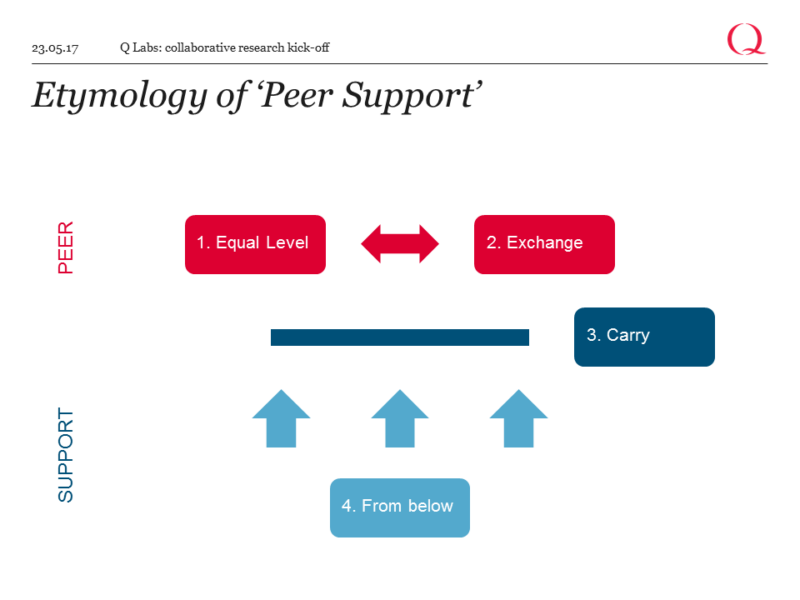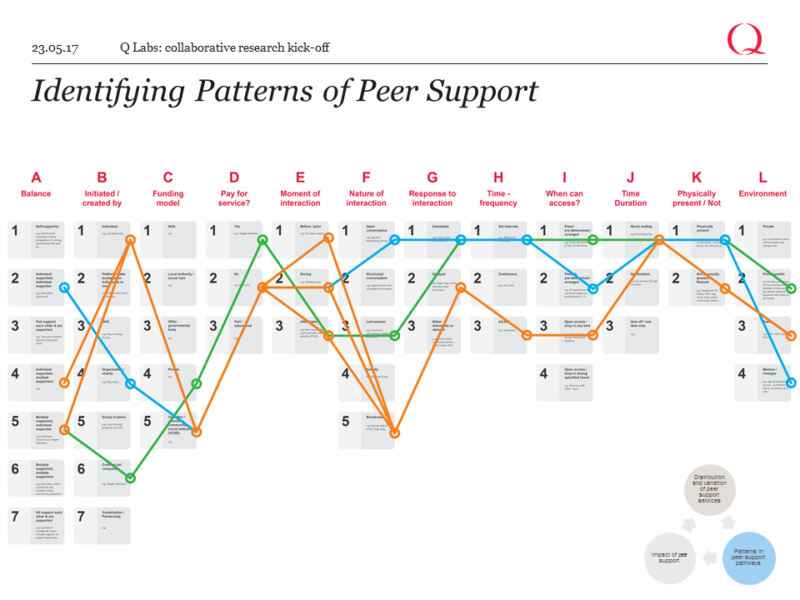On 23 May the Q Improvement Lab delivered its first webinar, kicking-off the research and discovery phase of a 12 month-long project to explore what it would take for effective peer support to be available to everyone who wants it to help manage their long-term health and wellbeing needs.
Born out of Q, the Q Lab was created to bring people together from across the UK to work and make progress on complex challenges facing health and care.
Since the first Lab challenge on peer support was announced, the Lab team has been trying to devise an innovative approach to research and discovery – combining the expertise of the Lab’s experience in design and the wealth of knowledge and insight within the Q Community and other organisations who are commissioning, designing and delivering peer support services.
Webinar discussion
Before delving into the approach itself, those on the call discussed the concept of peer support – questioning its various definitions and interpretations (of which there are many).
We proposed a very simple definition base on the origin of the words themselves alongside the phrasing.
Peer means equal, and implies exchange, while support can be defined as being both active and passive, and coming from below, carrying those above. We developed a very simple diagram to illustrate this.

This very simple definition allowed us to get into detailed discussion in the webinar about our research and approach without having to spend too much time on the many various definitions.
Research Approach
Our approach is action-based involving different approaches like interviews and ethnography as well as more traditional desk based review. The insight and discussion on the webinar itself is a really valuable form of research that has helped immensely already.
We believe the research has to acknowledge the subjective and objective nature of peer support and its impact. Indeed on the call we discussed the critical difference between informal and formal peer support, asking how do groups form, how do they identify themselves, and how can we recognise and understand ad hoc informal knowledge exchange that exists outside of various prescribing systems, whether NHS or charity based.
Overall the Lab isn’t trying to amass all the knowledge on peer support (there are many great pieces of research on this, and many examples). Instead we are building on what is there, taking a systemic view (like the questions about knowledge exchange and how it occurs) so that we can discover gaps and opportunities to explore and address in our workshop on the 13-14 July.
So as to start with, the team is focusing on three elements to help understand and map peer support:
- Understanding the distribution and variation of peer support services in the UK
- Identifying patterns in peer support delivery
- Assessing both the subjective and objective impact of peer support.
We have developed a series of design tools that we showed as part of the webinar (example image here) to help answer the questions above, and it was hugely valuable to receive feedback as part of the call.

Next time we will be going into detail about the July Workshop and asking Webinar participants to offer thoughts and insights to our approach and principles for the two days (this is on 14th June. If you’d like to take part, contact the Lab).
With the Lab aiming to be as collaborative as possible, it was really encouraging that already a diverse group of people joined us, including commissioners, representatives from AHSNs as well as patients.
Overall the webinar provided a platform for engaging and lively discussion in advance of our next workshop in July, and our next webinar before that.
Listen to the webinar: (skip the first minute)
Get involved
If you’re interested in being part of the Lab, whether you are interested in peer support or curious about the Lab approach, get in touch with us at QLab@health.org.uk.